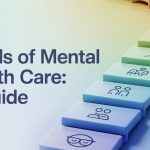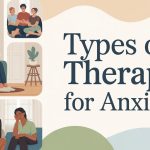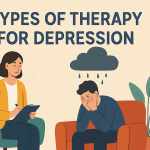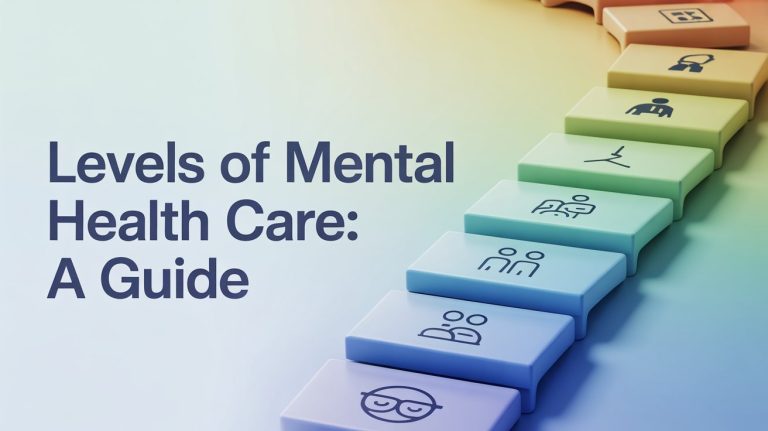What is Cognitive Therapy?
Cognitive Therapy (CT) as a form of psychological intervention is a strong one as it aims to assist individuals’ understanding, and modification of the maladaptive patterns of thoughts. It’s like having a reset button for your brain – you stop operating on autopilot and you start asking questions to your thoughts that make you anxious, depressed, or overwhelmed.
History and Origins of Cognitive Therapy
Cognitive Therapy was invented in the 1960s by Dr. Aaron T. Beck. Psychoanalysis was ruling mental health care at the time, but Beck observed something interesting. Many of his depressed patients had subconscious ideas about themselves, the world around them, and their future that were negative. That observation instigated the revolution in therapy.
100% Confidential Support is Available 24/7
No matter what you’re going through, you’re not alone. Our dedicated team is here to provide a safe, judgment-free space where you can talk openly and honestly. Whether you need emotional support, resources, or just someone to listen.
We’re here for you—completely confidential and always respectful of your privacy. Call us today!
Key Figures Behind its Development
Albert Ellis, who is responsible for developing Rational Emotive Behavior Therapy, is one of them. Although Beck is the founding father. Their joint efforts established what today is referred to as Cognitive Behavioral Therapy (CBT), which is a popular evidence-based practice approach to mental health treatment.
Deland Treatment Solutions
Battling with Drug and Alcohol Addition? Remember, you are not alone and we are here to help you!
The Major Principle in Cognitive Therapy
The Thought-Emotion-Behavior Connection
This is at the core of cognitive therapy: this simple, but profound, idea. “The way you think determines the way you feel and acts”. The example would be when you see your friend frown, and the thought that comes to mind is that “They are mad at me”. You will probably be anxious or guilty and avoid them. So what if the reality is – they are just having a bad day?
The Role of Automatic Thoughts
Such instant reactions that come to your mind without you knowing are automatic thoughts. Cognitive therapy makes you understand these mental flashes, and most importantly, the negative or untrue ones.
Cognitive Distortions and Their Impact
Have you ever caught yourself saying “I always mess things up “ or ” No one likes me “? That’s a cognitive distortion. These are the erroneous and over-generalized patterns of thinking which spark emotional pain. CT teaches you how to identify them and counter their feelings with facts.
Foundational Beliefs of Cognitive Therapy
It is not the Situation, it is the Interpretation.
It is possible for two individuals to experience the same and feel completely different. Why? Since it’s not the situation, by itself, which causes emotional distress, but the meaning we give to it. This enlightenment is one of CT’s tenets.
Thoughts can be recognized and countered, and changed.
CT is beautiful in the fact that it promises you that you are not your thoughts and that you do not have to believe everything you think. After being able to recognize the negative thought patterns, you can dispute them and create better, more balanced views.
Alteration of Thoughts, Alter Behaviors and Feelings.
Through the change in thinking, one alters how he or she feels. When your emotions change, so do, your actions. It is a domino effect, only in a good way.
Practicalities of How Cognitive Therapy Works
Identifying Negative Thought Patterns
Therapists teach you to slacken and become aware of repeated thoughts that are destroying your mood or behavior. This usually begins with something like journaling or questions directed by the therapist in therapy.
Challenging and Replacing Irrational Beliefs
When those patterns are found, it is time to put them in a window and examine them. Ask yourself: Is this thought true? What evidence do I have? Can this be another way of looking at it?
Behavior Experiments and Real-Life Testing
CT is not all about talking, it is about doing. You will always be encouraged to try out your thoughts in reality. Scared of being laughed at if you raise your voice in a meeting? Give it a try and see what comes out of it. (Spoiler: It’s probably older than you are thinking).
Tools and Methods in Cognitive Therapeutic Processes
Socratic Questioning
This approach was named after the Greek philosopher who used it. It consists of the utilization of deep, guiding questions that allow you to come up with more realistic, balanced beliefs. It is more about finding your own truths than getting some advice.
Thought Records and Journaling
You will notice patterns when you write your thoughts, feelings, and behaviors. These tools are brilliant for self-awareness development and the creation of a map for change.
Cognitive Restructuring
Whoa! Now this is where the magic takes place – substituting lopsided thinking with more correct, constructive ones. It’s as if you were to renovate a mental house that has fallen into pieces and turn it into a place you want to live.
Benefits of Cognitive Therapy
Treating Depression and Anxiety
CT has been demonstrated to be very effective in treating depression, anxiety, PTSD, and even OCD in many studies conducted. It’s backed by science and results.
Building Emotional Resilience
Life throws curveballs. CT trains you to be flexible in the face of adversity, enabling you to pick up faster by providing you with the perspective and sanity of your response.
Enhancing Self-Awareness and Control
Looking to be more in control of your own life? CT will put you in a place where you’ll learn why you act the way you do, and what to do to change it. That self-insight is empowering.
Limitations and Misconceptions
Not a One-Size-Fits-All Approach
Though CT is hugely beneficiary to a lot of people, it is not the perfect option for all. In regard to other modalities such as DBT, ACT, or EMDR, some people might be better helped by them based on their needs.
Requires Active Participation
Cognitive therapy isn’t passive. It’s a hands-on, mind-on process. You’ve got to be willing to work in the session as well as the intervals.
Misconception: Just “Thinking Positive”
CT is not about pasting on a smile and acting like everything is ok. It is realism and not blind optimism. There is a massive gap between fake positivity and an authentic viewpoint.

Ready to grab control of your minds and change your life? DeLand Treatment Solutions believes in the power of cognitive therapy to free you from those negative thinking patterns and open the door to a stronger, better-balanced mindset. No matter whether you are dealing with anxiety, depression, or just a desire to become more emotionally stamina, our professionals are here to assist you at every stage.
Let not useless thoughts limit you – find out the clarity, confidence, and peace you deserve. Contact DeLand Treatment Solutions now and begin your journey to real change.



















